Grooveshark is dead. Killed after 10 years by old blood record labels.
The famous music streaming service offered free streaming of almost all songs, and infamously did so without licenses. It's a bit surprising that the site stayed online as long as it did; it took until April 30, 2015 for the site to go completely offline Tesla Energy Is Live, Grooveshark Is Dead, Microsoft guesses your age and more… [Tech News Digest ] Tesla Energy is live, Grooveshark is dead, Microsoft guess his age and more... [Tech News Digest] Tesla Energy lives, Grooveshark dies, Microsoft knows how old you are, Night Terrors invade your home, download PT from PlayStation Store, and the elderly react (badly) to Mortal Kombat X. Read more, after nearly a decade of controversy.
From now on, potential users will receive a message instead of music:
It is quite an affirmation, considering the history of the company. As recently as 2012, its CEO argued that all music should be free, suggesting that artists focus on concert revenue:
Well, it's now 2015 and the stream generation is well established. End of ownership:Netflix, Spotify and The Streaming Generation. End of ownership:Netflix, Spotify and The Streaming Generation. Streaming media is convenient, but you're giving something up. Important:ownership of digital media. Read More inspired countless songs. -punctured loaded headlines and reignited the debate over streaming music services. Read More
How did Grooveshark stay alive for so long? And what does its closure mean for users? Let's see.
In its most recent incarnation, Grooveshark was a website that offered free streaming music. You can head over to the site, search for any artist, album, or track, and basically start playing what you wanted right away.
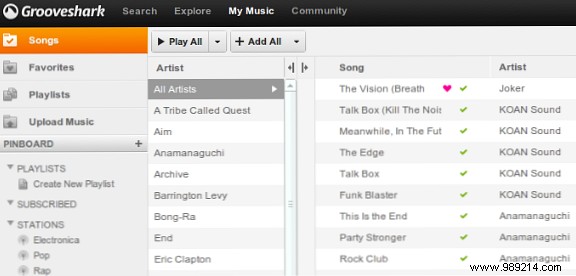
A mobile app was briefly available, but was eventually removed from both the Apple App Store and Google Play. To get around these restrictions, Grooveshark created an HTML5 version of their site that mobile users could open in any browser.
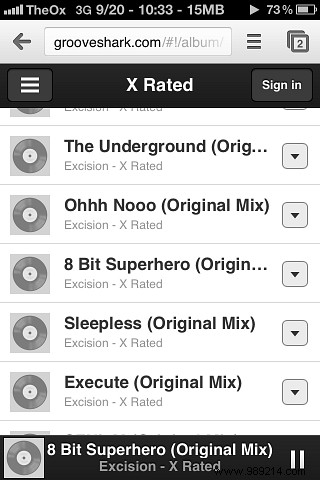
There was a lot to like about Grooveshark. You can play any songs you want, including many things not offered on other streaming services. If you couldn't find a particular song, but you had it on your computer, you could upload it, which means that Grooveshark was a kind of YouTube for music.
Of course, in its early days, YouTube itself was full of pirated content, something that led to more than a few lawsuits. This is why YouTube today has a filter to detect unauthorized uploads of protected movies and TV shows, along with a host of other (controversial) tools for rights holders to remove videos from the site.
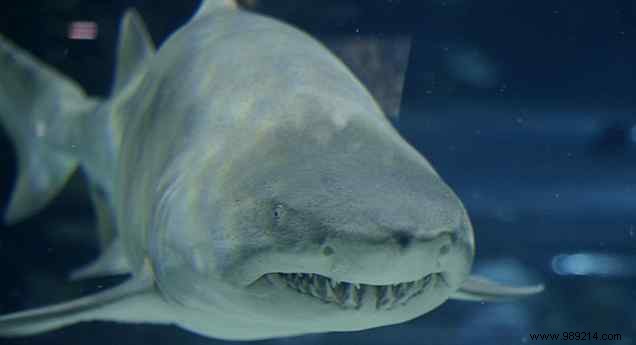
Grooveshark did not implement any of this. If a record company specifically requested that a recording be removed, they would comply, all that is required under the Digital Millennium Copyright Act (DCMA).
But once the music was removed, it would reappear on the site quickly, sometimes within hours. Grooveshark argued that it was the users who re-uploaded the music, and that it was not Grooveshark's responsibility to re-download the music without another takedown request. This meant that for record companies, keeping their music off Grooveshark meant playing an endless game of whack-a-mole.
This was the status quo for a long time, until internal emails revealed that at least some Grooveshark employees were uploading music themselves.
Grooveshark basically shut down because it was a piracy streaming service. That's a claim Grooveshark has long denied, but is now spelled out explicitly in the mea culpa posted on its home page.
Good question. The answer is simple, according to music industry consultant Mark Mulligan.
"Good lawyers, basically," Mulligan told The Atlantic, adding that he took the labels. “time to be able to make the case.” He added:
Grooveshark was very good at exploiting the gray areas of the law, and the legal system's endless stream of appeals, to stay in line. But that couldn't last forever.
Basically, they're screwed. Grooveshark is completely gone, and he's not coming back. Record labels now own the service, and it's highly unlikely they'll bring it back in any form that resembles what the site was. If Jay Z's Tidal is any indication, the industry sucks at streaming sites. Doomed to Fail Why Jay Z's Tidal Music Streaming Service Is Doomed to Fail Jay Z recently relaunched Tidal, the music streaming service he acquired for $56 million. Tidal has 99 issues, and Ringtone is one. Read more.
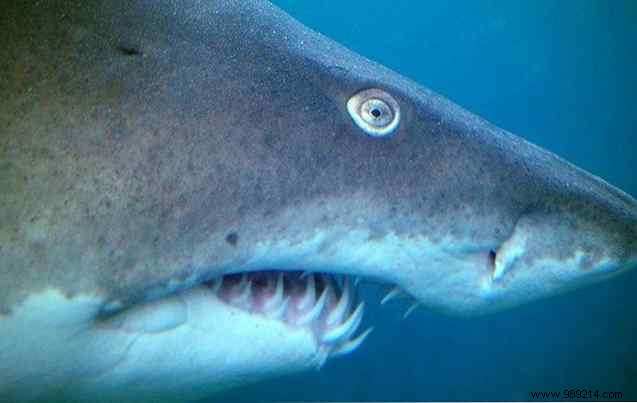
However, if you've been a Grooveshark user for a long time, it might be possible to recover at least something. GrooveBackup aims to give you access to your playlists, but reports of this work are mixed at best.
Assuming you haven't cleared your browser's cache in a while, there's another thing you can try:
MakeUseOf profiled Grooveshark in 2008 Grooveshark - Free Legal Music Online Grooveshark - Free Legal Music Online Read More
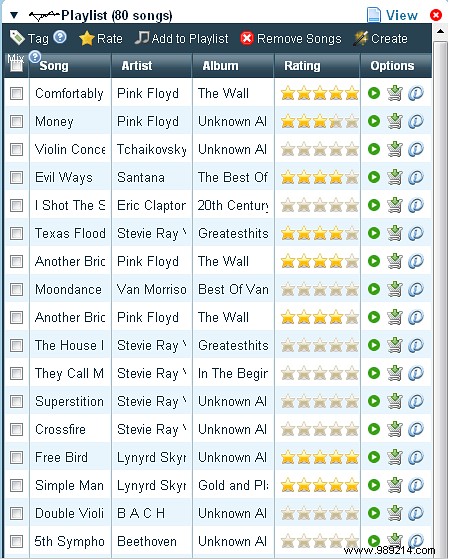
Users needed to download a piece of software before they could play music, and even email a Grooveshark employee directly before they could access the service.
At the time, Grooveshark wasn't just for streaming songs:you could actually buy a "used copy" of an MP3 from another Grooveshark user (if you did, the MP3 would be deleted from the other user's computer).
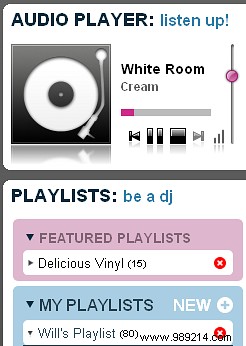
Naturally, for most major labels, Grooveshark was not allowed to do this at all, as VentureBeat's Chris Morrison explained at the time.
This would be the Grooveshark pattern for most of its existence. The site eventually abandoned the idea of selling used MP3 files without rights holders' permission, focusing instead on offering music streams without rights holders' permission.
Long-time Grooveshark users will clearly miss the site, but anyone surprised by its approval clearly wasn't paying attention. The writing has been on the wall for Grooveshark for a while now.
As such, I bet most of you found alternatives a long time ago, and I want to know what services you intend to use now that the inevitable has happened. Possible Grooveshark replacements include Spotify, Rdio, and even YouTube, but I want to know what hidden gems you might know about. Let's talk!